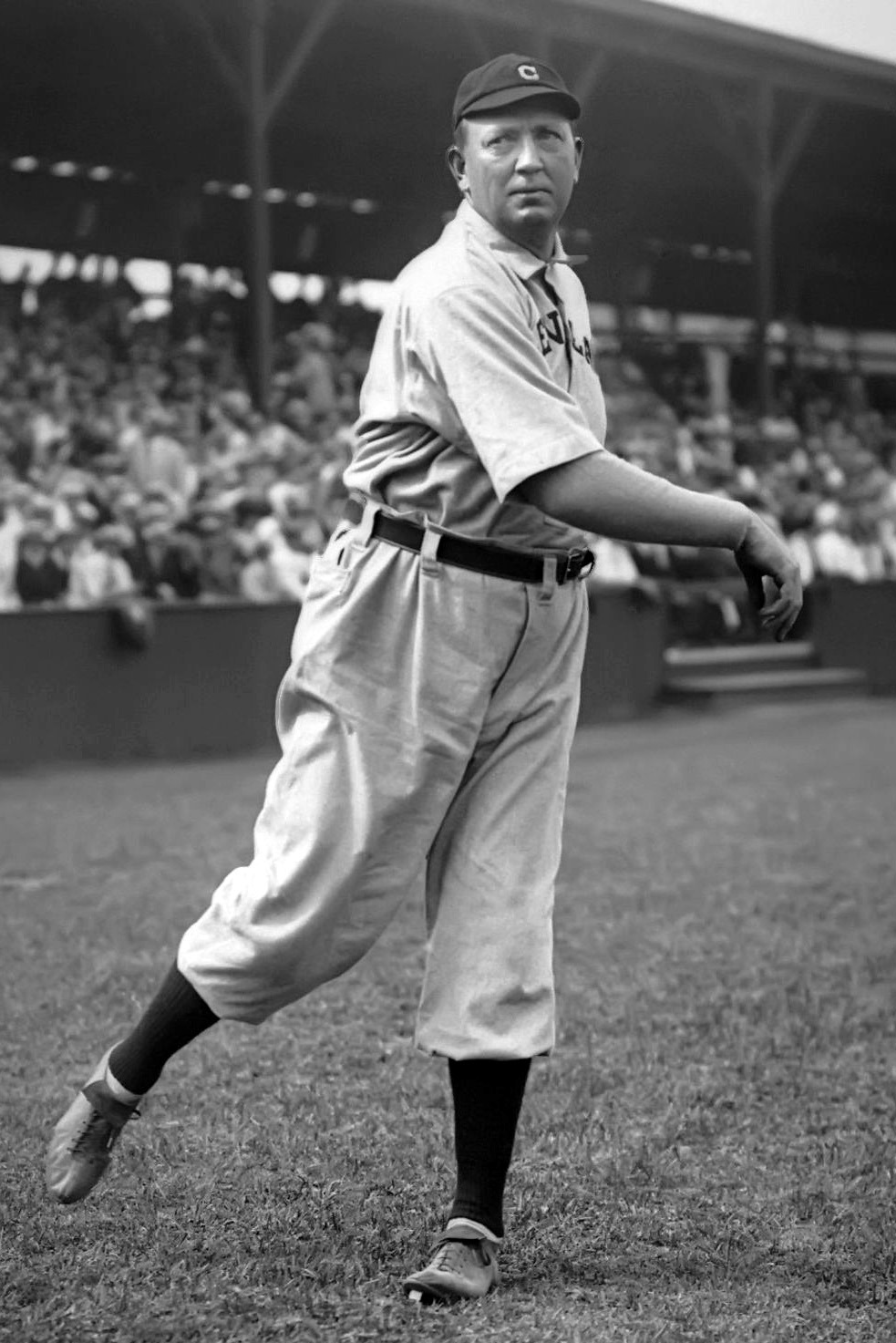Denton True Young was born on a farm in Gilmore Ohio to a former Civil War Private and his wife. At a young age Denton and his brothers were smitten by the game of baseball. They would sometimes travel twenty miles either on foot or horseback to play a single game. Early on in these games, Denton’s strong build and arm quickly gained him the title of pitcher on the teams he played on.
As a teen, he and his father moved to Nebraska where Denton worked as a farm hand and played semi-pro baseball on the weekends. In the year 1887, Denton and his father moved back to their family in Gilmore Ohio. Denton continued to play semi-pro ball for a team in New Athens as a pitcher and a second base man. Then, in 1890, a minor league team based in Canton signed Denton on the team.
There he earned the nickname “Cyclone” when he proved his ability to his teammates by throwing baseballs so hard into a fence that the fence looked like it had been hit by a cyclone. The nickname eventually shortened to “Cy”. Despite the fact the Cy was playing for an awful team, he was recognized as the Tri-State League’s best pitcher.
In July of 1890, Cy pitched his first no-hitter, striking out eighteen batters, againstMckeesport. Also in 1890, the creation of a third major league made Cleveland’s teams very interested in Cy. They paid 300 dollars to Canton for Cy and increased his monthly salary from 60 dollars to 75. At the end of the 1890 series CY had won 9 games and lost 7, this was a satisfactory record for a rookie.
In the 1891 season, however, he had a very respectable record of 27-20 despite the fact of an end of season slump. In the 1892 season he proved himself to be the best pitcher in the National League. The next year the League decided to split the season into two seasons. In the Fall pennant Cy led his team, the Spiders, with a record of 21-3. That year, he married Robba Miller, a 21-year old woman whom he had grown up with in Gilmore, Ohio.
In the year of 1893, baseball owners made the decision to move the pitchers mound back five feet in order the produce more offense. This change ruined the careers of many pitchers who either got hit to much or they threw their arms out. A few notable exceptions were Cy Young, Kid Nichols, and Amos Rusie. Throughout his career as a pitcher, Cy had always been one of the strongest pitchers in baseball. With a height of six-foot two and weighing 210 pounds he was able to dominate because of the strength and stamina given to him by his body.
At the end of the 1898 season Cy and a few of the Spider’s other top players were moved to the St. Louis Cardinals. After two years on the Cardinals and at the age of thirty-three news stations were beginning to speculate whether Cy’s baseball career was at an end. Then, in 1901, the American League declared itself to a major league contender. Cy Young joined the American after finishing a mediocre year on the Cardinals. He had been offered several hundred dollars more than the max salaries being paid out in the National League.
In 1901, playing for the Boston Americans, Cy dispelled the talk that he was done. In that season, he led the league with thirty-three wins, an ERA of 1.62, and 158 strikeouts. In 1903, he had three straight starts in which he shut out the other team 1-0. That year the Boston Americans played the Pittsburgh Pirates, who were the National League Champions, in the first ever World Series. Cy went 2-1 in his starts in the Series.
On May 5, 1904, Cy pitched the 1900’s first perfect game against the Philadelphia A’s. The next few years, the Americans did not do as well. In the 1905 season, however, Cy had 208 strikeouts, a record for his career even though his win record was 19-18. In 1908, at the age of forty-one, he pitched his third no-hitter against the New York Highlanders. Also during that year he had a record of 21-11 and an ERA of 1.26 – a career record.
In 1909, he was traded to the Cleveland Naps (Indians) and won nineteen games. But in 1910, his age caught up with him. He developed a noticeable paunch and went 7-13 that year. After the season ended, he was released by Cleveland and signed on with Boston. Late in the season, he started against the rookie Grover Cleveland Alexander, who played for Philadelphia, and lost 1-0. After that game he knew that he was done. Despite the fact, he showed up for spring training with Boston. The batters began bunting off of him because his weight made it difficult for him to field the bunts.
He retired before the season started. Cy went back to his farm in the tiny town of Peoli, Ohio and stayed close to baseball the rest of his life. He was elected to the baseball hall of fame in 1937 and died when he was eighty-eight by a heart attack in his rocking chair. The words on his gravestone assert that his record of 511 wins out of 912 games will never be surpassed. They are probably correct.
Averaging about forty starts per year, with ninety-two percent of his outings being complete games, Denton “Cyclone” True Young was most likely the greatest pitcher ever to set foot on a pitchers mound. In honor of this baseball legend, the Cy Young award was created in 1956, a year after Cy’s death, by Commissioner Ford Frick and the Baseball Writers Association of America. This award was originally designed to commemorate the best pitcher of both baseball leagues. It was then changed in 1967 to be awarded to one pitcher from each league
Save
